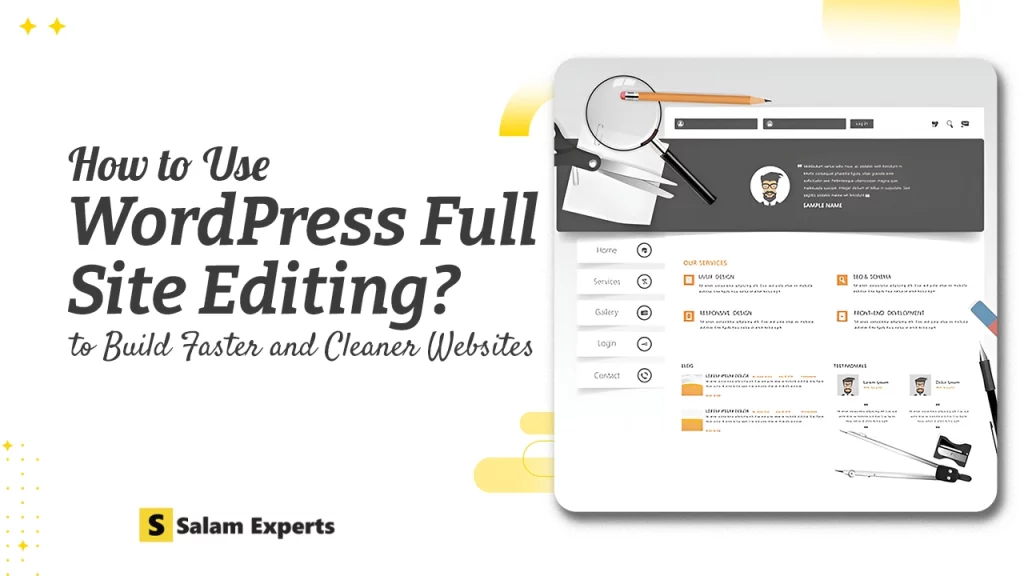Advanced Organic SEO Concepts Every Expert Should Master

While basic SEO principles are widely understood, the gap between intermediate and expert-level optimization lies in mastering sophisticated concepts that drive sustainable organic growth. These advanced strategies separate professionals who achieve consistent results from those who struggle with algorithmic changes and competitive pressures.
Semantic Entity Optimization: Beyond Keywords
Modern search engines understand entities—people, places, things, and concepts—rather than just matching keywords. Expert SEO practitioners leverage this understanding to create comprehensive content strategies.
Entity Relationship Mapping: Instead of targeting isolated keywords, map relationships between core entities in your niche. For example, when optimizing for “digital marketing,” understand connected entities like “conversion optimization,” “marketing automation,” “customer acquisition cost,” and “attribution modeling.”
Co-occurrence Patterns: Analyze how entities appear together in top-ranking content. Tools like natural language processing APIs can reveal semantic relationships that inform content structure and topic coverage.
Entity Salience: Focus on entities that carry the most weight in your topic area. Google’s Natural Language API can help identify which entities in your content have the highest salience scores.
Information Architecture and Topical Authority
Expert SEO requires thinking architecturally about how content interconnects to establish domain-wide authority signals.
Topic Clusters with Hub Architecture: Create comprehensive hub pages that serve as authoritative centers for broad topics, supported by detailed cluster content addressing specific subtopics. This structure signals topical depth to search engines.
Internal Link Equity Distribution: Develop sophisticated internal linking strategies that distribute PageRank effectively throughout your site hierarchy. Use log file analysis to understand crawler behavior and optimize link placement accordingly.
Content Depth Layering: Structure content at multiple depth levels—from broad overview content for top-funnel queries to highly specific technical content for expert-level searches. This approach captures traffic across the entire search intent spectrum.
Advanced Technical SEO Concepts
Technical excellence at the expert level involves understanding how search engines process and evaluate websites at scale.
Crawl Budget Optimization: For large sites, managing crawl budget becomes critical. Analyze server logs to identify crawl waste, optimize URL parameters, and implement strategic crawl directives to ensure search engines focus on your most valuable pages.
JavaScript SEO Mastery: With increasing reliance on JavaScript frameworks, understand client-side vs. server-side rendering implications. Master techniques like dynamic rendering, prerendering, and server-side generation to ensure JavaScript content is properly indexed.
Core Web Vitals Optimization: Go beyond basic page speed improvements to understand the nuances of Largest Contentful Paint (LCP), First Input Delay (FID), and Cumulative Layout Shift (CLS). Implement resource prioritization, efficient loading strategies, and performance monitoring systems.
Structured Data Strategy: Deploy sophisticated schema markup strategies that enhance rich snippet opportunities. Understand how different schema types interact and how to implement nested structured data for complex content types.
Search Intent Sophistication
Expert-level intent analysis goes far beyond the traditional informational, navigational, transactional, and commercial investigation framework.
Multi-Intent Query Analysis: Many queries contain multiple intent signals. Develop content strategies that address compound intents within single pieces of content while maintaining coherent user experiences.
Intent Evolution Tracking: Monitor how search intent for core terms evolves over time. User behavior and expectations change, requiring content updates that align with shifting intent patterns.
SERP Feature Intent Signals: Analyze which SERP features appear for target queries to understand Google’s interpretation of user intent. The presence of featured snippets, knowledge panels, or video carousels provides insight into optimal content formats.
Competitive Intelligence and Market Analysis
Gap Analysis Frameworks: Develop systematic processes for identifying content gaps where competitors rank but you don’t. Use tools like content gap analysis to find low-competition, high-opportunity keywords within your competitive landscape.
Backlink Profile Deconstruction: Analyze competitor link profiles not just for link building opportunities, but to understand their content promotion strategies, industry relationships, and authority-building approaches.
SERP Volatility Monitoring: Track ranking fluctuations across your competitive set to identify algorithm updates, seasonal patterns, and emerging competitive threats before they impact your visibility.
User Experience Integration
Expert SEO seamlessly integrates user experience considerations into optimization strategies.
Behavioral Signal Optimization: While not direct ranking factors, user behavior signals influence search performance. Optimize for metrics like time on page, scroll depth, and return visitor rates through improved content structure and engagement elements.
Cross-Device Experience Consistency: Ensure optimization strategies account for user journeys that span multiple devices. Implement consistent experiences that maintain context and functionality across desktop, mobile, and tablet interactions.
Conversion Path Optimization: Understand how organic traffic converts throughout the customer journey. Optimize not just for rankings, but for the complete conversion funnel from initial search through final action.
Advanced Analytics and Attribution
Multi-Touch Attribution Modeling: Understand how organic search contributes to conversions across complex customer journeys. Implement attribution models that accurately measure SEO’s impact on business outcomes.
Cohort Analysis for SEO: Track user groups over time to understand how SEO improvements impact long-term user value, retention, and lifetime customer value.
Statistical Significance Testing: Apply rigorous statistical analysis to SEO tests and changes. Understand confidence intervals, test duration requirements, and how to isolate SEO impact from other marketing activities.
Content Optimization at Scale
Content Performance Prediction: Develop models that predict content performance based on topical coverage, keyword difficulty, content depth, and historical performance data.
Automated Content Auditing: Implement systems that regularly audit content for freshness, accuracy, performance, and optimization opportunities. Use APIs and custom scripts to monitor content health at scale.
Dynamic Content Optimization: For sites with large product catalogs or user-generated content, develop templates and systems that automatically optimize content elements while maintaining quality and relevance.
International and Multi-Market SEO
hreflang Implementation Strategy: Master the nuances of hreflang implementation for complex site structures, including handling of regional variations, language dialects, and cross-domain scenarios.
Cultural Search Behavior Analysis: Understand how search behavior varies across cultures and markets beyond simple language translation. Research local search patterns, seasonal trends, and cultural context that influences query formulation.
Multi-Market Content Strategy: Develop content strategies that balance global brand consistency with local market relevance, considering varying competitive landscapes and user preferences across markets.
Algorithm Resilience and Future-Proofing
Ranking Factor Diversification: Avoid over-reliance on any single ranking signal. Build comprehensive optimization strategies that strengthen multiple ranking factors simultaneously.
Continuous Learning Integration: Establish systems for staying current with search engine evolution, including following patent filings, analyzing SERP changes, and participating in industry research initiatives.
Strategic Flexibility: Develop optimization frameworks that can adapt to new search features, user behaviors, and technological changes without requiring complete strategy overhauls.
Implementation Excellence
Cross-Functional Integration: Develop skills in working with development teams, content creators, UX designers, and business stakeholders to implement SEO improvements within complex organizational structures.
Testing and Validation Frameworks: Establish systematic approaches to testing SEO hypotheses, measuring impact, and scaling successful optimizations across entire websites.
Performance Monitoring Systems: Implement comprehensive monitoring that tracks not just rankings and traffic, but the full spectrum of SEO health indicators, competitive position, and business impact metrics.
Conclusion: The Expert SEO Mindset
Mastering these advanced concepts requires shifting from tactical execution to strategic thinking. Expert SEO practitioners understand that sustainable organic growth comes from building comprehensive, user-focused optimization strategies that enhance every aspect of the search experience.
The most successful SEO experts don’t just implement best practices—they understand the underlying principles that drive search engine behavior and user satisfaction, allowing them to adapt and innovate as the search landscape continues evolving.
Success at this level requires continuous learning, systematic thinking, and the ability to balance technical precision with strategic vision. These concepts form the foundation for SEO expertise that delivers lasting results regardless of algorithmic changes or competitive pressures.
Author
-

We are a digital marketing agency with over 17 years of experience and a proven track record of helping businesses succeed. Our expertise spans businesses of all sizes, enabling them to grow their online presence and connect with new customers effectively.
View all posts
In addition to offering services like consulting, SEO, social media marketing, web design, and web development, we pride ourselves on conducting thorough research on top companies and various industries. We compile this research into actionable insights and share it with our readers, providing valuable information in one convenient place rather than requiring them to visit multiple websites.
As a team of passionate and experienced digital marketers, we are committed to helping businesses thrive and empowering our readers with knowledge and strategies for success.





